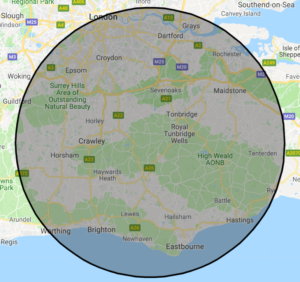Is your business neutral or is it too dependent on a key employee, customer or supplier?
Do you often find yourself relying on one customer for a high percentage of your business? Do you ever worry about the strength of your business if that one client were to take their business elsewhere? On the other hand, do you outsource a vast majority of your work to one supplier or manufacturer? Does your business heavily depend upon one employee who seems highly irreplaceable? If any of these seem to be applicable to your business, then you’ll be interested to read about the Switzerland Structure and how it can help strengthen your business.
What is the Switzerland Structure?
The Switzerland Structure is so called because it replicates the neutrality of which the Swiss are so proud. It means creating a robust structure within your business in which you are not overly dependent on any one employee, client or manufacturer.
It is inevitable for many small businesses that the owner-manager and key support team are likely to play a vital part in the firm. It is also likely that larger clients and reliable vendors will also play a significant role – and typically more so than they might for very large firms. To develop a resilient business, you want to avoid placing too much emphasis on just these players within your business.
Whilst continuity and reliability can be useful in promoting efficiency within your business, problems can also arise from this dependency. The more you rely on any individual or company (client or supplier) within your business, the more your business can be held hostage to their whims or fortunes. If you only have one key supplier, what happens is they go bust? If one employee delivers all new business, what happens if they decide to move to a new employer? As an owner-manager, over-dependence can be on yourself: for your business to be robust, it is important that you are not the business. What would happen to your company if you were unable to work for a month or longer?
An over-dependence on key staff, customers and suppliers not only makes your business more susceptible to changes in their fortunes or ambitions, it also makes it less desirable to potential buyers. A buyer will want to know your business can thrive without you, as ultimately this is the reality they will be facing. They will also want to know that the business would survive if some customers moved elsewhere or if a supplier could no longer fulfill their role.
Are you too reliant on one customer or person?
This is possibly one of the biggest qualms for small- and medium-sized enterprises; although we don’t like to admit it, your clients and suppliers are often unreliable, unstable and unpredictable. It’s hard to feel comfortable if all your eggs are in the basket of one customer or supplier – and it’s a gamble potential buyers are unlikely to want to take. This does not mean that your business is worthless or unsellable, it merely implies that broadening your client and supplier base will make your business immediately stronger – and more attractive if you do decide to sell in the future.
I often like to pose the question to my clients: what would you do if you were up capacity overnight? Many business owners cannot think of a suitable response to this question: why? Because many of us, as business owners, are too reliant on our own skills as professionals and managers in overseeing the business as a whole. Whilst this evidently shows a great deal of skill in being the glue that holds your company together, to make your business more robust – and ultimately more sellable – it is usually a good idea to invest time and resources into making other individuals within your company capable of performing many of the vital tasks you undertake.
A key example of the Switzerland Structure in practice
It’s not just small businesses that can be overly dependent on key players and that fail to achieve the desirable neutrality of the Switzerland Structure. One unexpected example lies in FedEx and the US Postal Service, which contributed to a large percentage of FedEx’ overall sales. FedEx’ contract with the US Postal Service ran out in 2012; because it contributed such a high proportion of their sales, Fedex could not afford to lose the bid and therefore was forced to slash their profit margin, creating a long-term financial loss. Furthermore, in the short-term, on the day of the new contract came into force their shares fell by 1%, clearly showing the role the Switzerland Structure has to play in making a business more valuable.
Identifying how neutral your business is
The role of the Switzerland Structure is something I address with business owners through a powerful tool called Value Builder. This looks to assess your company’s current performance in eight key areas, so we can identify where we need to strengthen your business to make it stronger and more profitable – and more able to support your business and personal goals in the future.
Value Builder exclusive offer
Value Builder is an extraordinarily powerful tool to give business owners the insights they need to meet their business and personal goals, so I am personally committed to making it available to entrepreneurs in Kent, Sussex and Surrey, in the area indicated in the map.
Value Builder normally costs business owners £500. However, I am delighted to offer it to selected businesses free of charge – and I am also pleased to offer the follow up 90-minute 121 consultation to go through your results at my expense.
Why? Well, I want businesses to have the very best chance to grow and develop, delivering the results business owners and their families deserve.
Secondly, I want to see businesses thrive and recruit additional team members to further grow the business and help to boost the local economy.
The full list of towns where I can provide this service is below, but if you don’t see your location, give me a call or drop me an email I will let you know if I can help you. If I can’t, I’ll put you in touch with one of my colleagues who helps businesses in your area.
To apply for your FREE Value Builder report and business strategy review
Call 01732 453 464
Or email julianweekes@actioncoach.com
I help business owners in the following towns:
Brighton & Hove |
Hailsham |
Lingfield |
Seaford |
Bromley |
Hastings |
Maidstone |
Sevenoaks |
Cranbrook |
Haywards Heath |
Newhaven |
Sittingbourne |
Crawley |
Heathfield |
Orpington |
Tenterden |
Crowborough |
Hildenborough |
Oxted |
Tonbridge |
Dorking |
Horam |
Paddock Wood |
Tunbridge Wells |
Eastbourne |
Horley |
Redhill |
Uckfield |
East Grinstead |
Horsham |
Robertsbridge |
Wadhurst |
Edenbridge |
Kings Hill |
Rotherfield |
Worthing |
Goudhurst |
Lewes |
Rye |
Don’t see your location in the list? Drop me a line and I’ll let you know if I can help you – or put you in touch with one who my colleagues who works with business owners in your area.
My clients benefit from supporting material and coaching in the following business areas:
Sales & marketing |
Lead generation |
Sales process |
Business planning |
Time management |
Finance, understanding the numbers |
USP & POD (Unique Selling Point and Points Of Difference) |
Systems |
Team / Team dynamics |
Recruitment / DISC / personality profiling |
Leadership |
Business growth |
Strategies for profit |
Succession planning |
Exit strategies |
Looking for support in one of these key business areas?
Call 01732 453 464
Or email julianweekes@actioncoach.com







